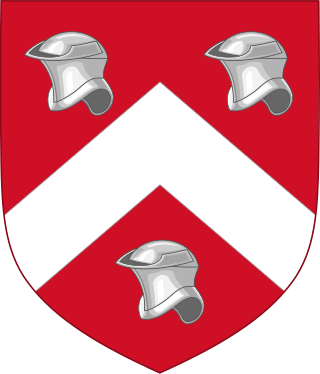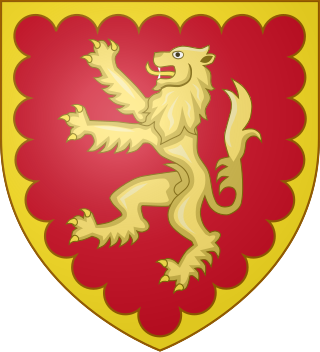Related Research Articles

Sir Owen Tudor was a Welsh courtier and the second husband of Queen Catherine of Valois (1401–1437), widow of King Henry V of England. He was the grandfather of Henry VII, founder of the Tudor dynasty.

Sir John Edward Lloyd was born in Liverpool. He was educated in the University College of Wales, Aberystwyth, which he left in 1881, and Lincoln College, Oxford, from which he graduated in 1883 with a first class honours degree. He married Clementina Miller and they had two children, Edmund and Eluned. He was knighted in 1934.

Sir John Morris-Jones was a Welsh grammarian, academic and Welsh-language poet.

Sir Glanmor Williams was a Welsh historian.

Sir John Rhŷs, was a Welsh scholar, fellow of the British Academy, Celticist and the first professor of Celtic at Oxford University.
Sir Robert Rees Davies, was a Welsh historian.
Kenneth Hurlstone Jackson was an English linguist and a translator who specialised in the Celtic languages. He demonstrated how the text of the Ulster Cycle of tales, written circa AD 1100, preserves an oral tradition originating some six centuries earlier and reflects Celtic Irish society of the third and fourth century AD. His Celtic Miscellany is a popular standard.
Ednyfed Fychan, full name Ednyfed Fychan ap Cynwrig, was a Welsh warrior who became Seneschal to the Kingdom of Gwynedd in Northern Wales, serving Llywelyn the Great and his son Dafydd ap Llywelyn. Ednyfed claimed descent from Marchudd ap Cynan, Lord of Rhos, and Rhufoniog. He was the patrilineal ancestor of Owen Tudor and thereby of the Tudor dynasty.
Sir Hrothgar John Habakkuk was a British economic historian.
Dauvit Broun is a Scottish historian and academic. He is the chair of Scottish history at the University of Glasgow. A specialist in medieval Scottish and Celtic studies, he concentrates primarily on early medieval Scotland, and has written abundantly on the topic of early Scottish king-lists, as well as on literacy, charter-writing, national identity, and on the text known as de Situ Albanie.
David Ellis Evans FBA was a Welsh scholar and academic. Having lectured at the University of Wales, Swansea, he returned to his alma mater the University of Oxford, serving as Jesus Professor of Celtic from 1978 until he retired in 1996.
Sir Keith Vivian Thomas is a Welsh historian of the early modern world based at Oxford University. He is best known as the author of Religion and the Decline of Magic and Man and the Natural World. From 1986 to 2000, he was president of Corpus Christi College, Oxford.

The Royal House of Dinefwr was a cadet branch of the Royal House of Gwynedd, founded by King Cadell ap Rhodri, son of Rhodri the Great. Their ancestor, Cunedda Wledig, born in late Roman Britain, was a Sub-Roman warlord who founded the Kingdom of Gwynedd during the 5th century, following the Anglo-Saxon settlement of Britain. As Celtic Britons, the House of Dinefwr was ruling before the Norman conquest, having to fight with their neighbors such as the Anglo-Saxons and Vikings, before struggling with the Normans afterwards. Many members of this family were influential in Welsh history, such as Hywel Dda, who codified Welsh law under his rule, and achieved the important title of King of the Britons, or Lord Rhys, Prince of Wales, who rebelled against Richard the Lionheart, and became one of the most powerful Welsh leaders of the Middle Ages.

The Cambrian Archaeological Association was founded in 1846 to examine, preserve and illustrate the ancient monuments and remains of the history, language, manners, customs, arts and industries of Wales and the Welsh Marches and to educate the public in such matters. The association's activities include sponsoring lectures, field visits, and study tours; as well as publishing its journal, Archaeologia Cambrensis, and monographs. It also provides grants to support research and publications.
Christopher Mark Williams was a Welsh academic, best known for his work on editing the diaries of Richard Burton. Williams was Head of the College of Arts, Celtic Studies and Social Sciences, and Professor of History at University College Cork, Ireland, from 2017 to 2024.
Nancy Margaret Edwards, is a British archaeologist and academic, who specialises in medieval archaeology and ecclesiastical history. From 2008 to 2020, she was Professor of Medieval Archaeology at Bangor University; having retired, she is now emeritus professor.
Gruffydd Aled Williams FLSW is a scholar who specialises in Welsh medieval poetry and Renaissance literature. He was brought up in Dinmael, Denbighshire, and Glyndyfrdwy in the former county of Merioneth. Educated at Glyndyfrdwy Primary School, Llangollen Grammar School and the University College of North Wales, Bangor, he graduated in Welsh in 1964. From 1965 to 1970 he was Assistant Lecturer in Welsh at University College, Dublin, and from 1970 he was Lecturer, Senior Lecturer (1984) and Reader (1991) in the Department of Welsh at the University of Wales, Bangor. In 1995 he was appointed Professor of Welsh and Head of the Department of Welsh at the University of Wales, Aberystwyth, a post he held until his retirement in 2008. He is now an emeritus Professor of the university.
Jenkyn Beverley Smith, FLSW, FRHistS, published as J. Beverley Smith, was a Welsh historian of medieval Wales, who was successively Sir John Williams Professor of Welsh History (1986–1995), Research Professor of Welsh History (1995–1999) and Emeritus Professor (1999–2024) at Aberystwyth University.
Geraint Huw Jenkins, FBA, FLSW is a historian of Wales and a retired academic. He was Professor of Welsh History at the Aberystwyth University from 1990 to 1993, when he became Director of the University of Wales Centre for Advanced Welsh and Celtic Studies. In 2009, he retired from academia and was appointed Professor Emeritus of Welsh History at the University of Wales.
Sydney Anglo, FSA, FRHistS, FLSW, FBA is a British historian, academic, and scholar. He is currently serving as Professor Emeritus at Swansea University.
References
- 1 2 "Professor Ralph Griffiths". Making History. Retrieved 29 March 2020.
- 1 2 "Professor Emeritus Ralph A. Griffiths, OBE". University of Swansea. Retrieved 29 March 2020.
- ↑ "Sir John Rhŷs Memorial Lectures". The British Academy. text
- ↑ Griffiths 2004, Preface.
- ↑ Wales, The Learned Society of. "Ralph Griffiths". The Learned Society of Wales. Retrieved 30 August 2023.
- ↑ "Leading slavery scholar wins prestigious British Academy prize for contributions to humanities and social sciences". The British Academy. Retrieved 2 September 2021.